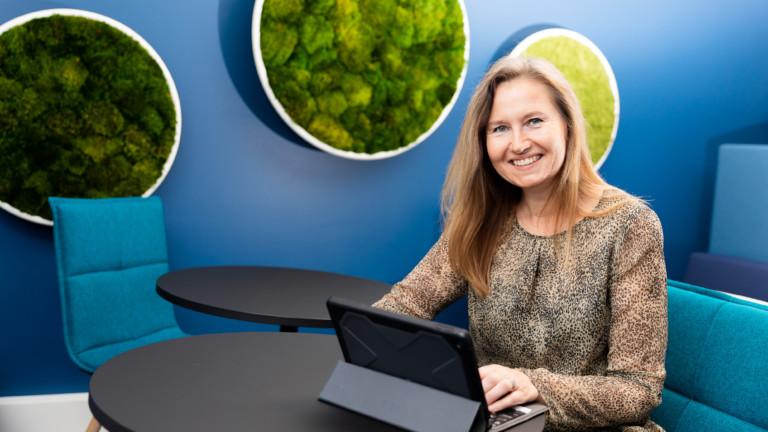In the Digivisio 2030 project Finnish institutions of higher education are working together to build a sustainable ecosystem for skills and knowledge where each of us can learn and amass skills and knowledge more easily and more flexibly in a changing world.
Institutions of higher education actively guide the project with the help of decision-making, piloting, and testing. Through a partial implementation model the institutions can offer their skills and knowledge to help the implementation of different projects and services, and in so doing, to be more active participants in Digivisio work.
Satu Hakanurmi of the University of Turku has taken part in the work of Digivisio through the partial implementation model since February 2022. Hakanurmi served as a specialist in digital pedagogics in the project.
“I have been involved in developing flexible learning environments both in Finland and in international projects since the early 1990s in different roles as a project director, teacher, or expert”, Hakanurmi says.
She has amassed experience both in university studies, adult education, open university teaching, vocational upper secondary education, universities of applied sciences, and education export. For most of her career Hakanurmi has worked at the University of Turku Open University and in recent years she has supported teaching at the University of Turku as part of a team of 20 members.
“I have been involved in specialist tasks in online teaching in Finland, as well as China, different European countries, Jordan, and in the coronavirus period as a teacher in eTeacher courses with Vietnamese, Indonesian, and international organisations”, Hakanurmi says, summarising her experiences. She also served as chair of the Digipeda network in 2021-2022.
Through collaboration among institutions of higher education to the future of learning
Hakanurmi says that active participation in the Digivisio project is considered important at the University of Turku. Regular meetings are held at the university among participants in the different areas of the project, and Piia Björn, Vice Rector of Education, is part of the project’s steering group.
“The goals of the Digivisio 2030 project speak to me personally as a developer of higher education and teaching. The goals of the project are ambitious and lead to new things. A commitment by all institutions of higher education to the project give it a kind of influence that is rarely experienced in development projects. Collaboration with other institutions of higher education is rewarding and I feel that a project covering all such institutions in Finland offers a unique vantage point”, Hakanurmi ponders.
The goal of Digivisio is set for the distant future. The aim of the project is to create an open and sustainable learning ecosystem in Finland by 2030 that has at its core the continued development of digital pedagogics and high-quality learning content. As an expert in digital pedagogics, Hakanurmi recognises the leaps that have been made in the field of online learning both in Finland and globally.
“I remember the first time that I went on the internet in 1995 and who showed me how to get there. That was the start of a great shift, because before that we engaged in open teaching at the University of Turku Open University in groups of students guided by free adult education, and study guides were sent by ordinary mail. After that, coordinated online teaching began directly from the university”, Hakanurmi recalls.
There has been a massive digital leap in institutions of higher education in the past two years, and it is important to take advantage of its principles and successes in the future. Having worked in the Digivisio 2030 project, Hakanurmi is expecting impressive results specifically in the field of digital pedagogy.
“The past will never come back, thanks to the digital leap spurred by COVID-19, and pedagogical skills are needed now more than ever to enable us to also create digital learning environments with learning and people in the forefront”, Hakanurmi says.
Do you want to be part of the Digivisio work?
New partial implementers are constantly being sought for different activities aimed at promoting the future of learning. Further information on the partial implementer model and on application processes currently under way can be found on the Digivisio Eduuni wiki (sign up required). If you are interested in work as a partial implementer, please get in touch with the contact person of the Digivisio project of your own institution of higher education.
